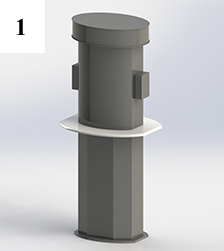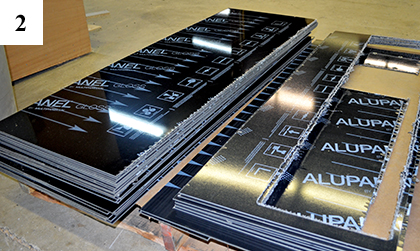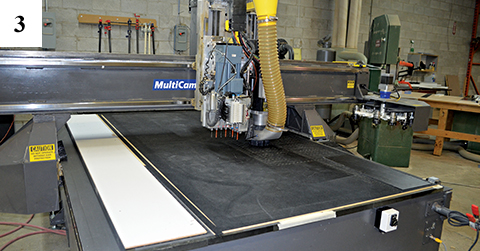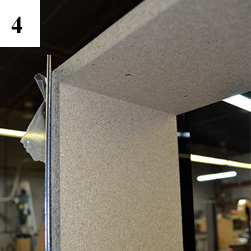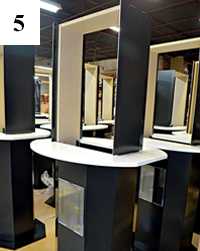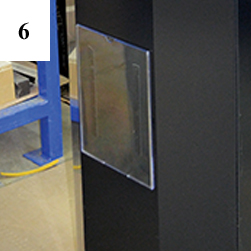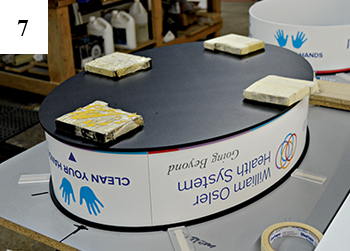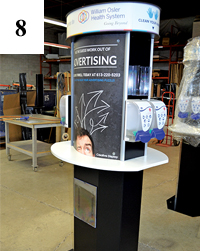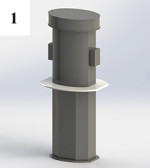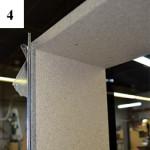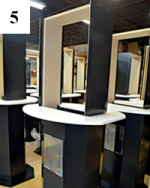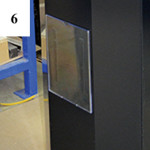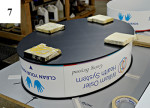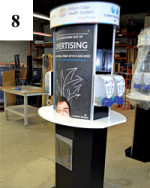Sign Shop Profile: DNS Industries
by all | 24 March 2015 10:49 am
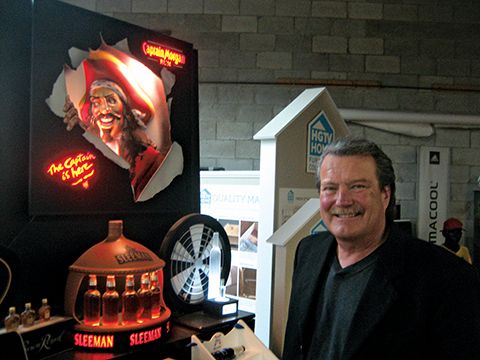 [1]
[1]Photo by Peter Saunders
By Peter Saunders
When Mike Douglas (pictured) started DNS Industries in Vaughan, Ont., on a shoestring in 2001, he was able to serve a previously established base of retail and food-service clients with custom-manufactured point-of-purchase (POP) displays, floor stands, counter displays and other components for their environments. In 2014, he was joined as president by a new CEO, Daniel Robert, in a restructuring aimed at expanding the company’s reach.
Personalizing production
Douglas has been in the business for more than
30 years. He began working for a display purchasing company, which got him interested in the manufacturing industry, so he next joined an acrylic fabricator. That led him to some of the clients he still does work for today.
“DNS came together quickly to support these customers’ requirements,” he says. “We started producing pieces right away and then found our niche as a full display manufacturer working with not just plastics, but also metal and wood.”
This niche centred on the capability to build hundreds of components when needed, while still being ‘small’ enough to focus on details.
“Some bigger manufacturing companies are more cumbersome, which can make it difficult to decipher what everyone wants,” says Douglas. “We can provide more personalized services for our clients. I still keep my hand involved in all project development.”
DNS was launched in a 372-m2 (4,000-sf) space and moved to its current 1,858-m2 (20,000-sf) space six years ago.
“That was a big step forward at the time,” says Douglas. “Rollouts of floor displays take up a lot of space.”
While the company’s projects require a multifaceted approach, including work by hand, digital technology has changed its display manufacturing processes significantly over the years.
“We bought our first router in our first year of business,” says Douglas. “I find myself wondering how we did anything before that! We used to have a sample maker and would put various pieces through different processes. Now we can simulate on a computer how a piece will fold, bend and interact with other elements before we created it through computer numerical control (CNC) routing, laser or waterjet cutting.”
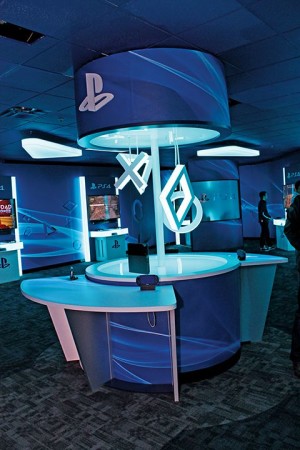 [2]
[2]The company’s milling and routing capabilities come in handy for many customized merchandizing displays. Photos courtesy DNS Industries
Recession recovery
The need for efficiency in manufacturing was emphasized during the global recession in 2008, when DNS managed to hold ground with many of its established clients, but found new opportunities were drying up.
“One of the problems was we didn’t have sales and marketing people internally,” says Douglas. “Other than my own sales, we were working through independent agents.”
Such was the backdrop for the addition of Robert as CEO, with an ownership stake. He has helped direct a new vision for DNS’ future.
“I began giving Mike some strategic advice at a time when DNS had shrunk from 25 to 30 employees to a bare-bones operation and was encountering production headaches,” he says. “I believed in the company because a high-quality, custom manufacturer should last forever. It was mainly a matter of networking and making new connections. The sky’s the limit!”
Robert is looking to export markets for growth, where he feels DNS’ specialized approach poses a strong alternative to low-cost manufacturing.
“We currently have a perfect scenario with the falling Canadian dollar, which makes us more competitive globally,” he says. “We can still serve the same core foundation of customers like Tim Hortons, but also seek growth opportunities with much more focus on marketing initiatives. And we’re figuring out how to increase our offerings to the existing clients, e.g. by integrating digital signs into displays.”
Lean manufacturing
DNS also survived its difficult period by remaining highly flexible, able to increase or decrease production tenfold as needed.
“I focus on ‘lean’ manufacturing because I’ve spent a lot of time in the past fixing problems on the shop floor,” Douglas says. “I’m always tweaking, adjusting and improving our processes. And because of all the attention we pay at the front end, not only do we specialize in short manufacturing schedules, but we’re also excellent at eliminating failures.”
“We specialize in high production runs of 200 to 400 pieces, but we can also handle a high-end one-off custom piece,” says Robert. “Productivity and efficiency are extremely important in this business and you need research and development (R&D) to yield improvements in those areas. We’ve entirely changed how some of our pieces are made, reducing costs by 30 per cent and standardizing new processes.”
Serving customers
These strengths have helped maintain business relationships with many major clients, including Tim Hortons, Adidas, Samsung, LG and Home Depot.
“In most cases, our customers are the vendors displayed in the stores, not the stores themselves,” says Douglas.
DNS manufactures floor and wall displays for Adidas, for example, to promote new shoes and clothing in Sport Chek stores across Canada. For Tim Hortons, DNS produces a range of small-format pieces, including card displays, handheld payment device modules, countertop merchandisers and even coin donation boxes for charities.
“In cases like that, we can design directly with the retailer,” says Robert, “but we also have lots of marketing firms coming to us that represent retailers.”
Among all of the various displays and fixtures, traditional signs represent a small part of DNS’ business, but are all the more noticeable for their size and profile, such as backlit letters that were both CNC-routed and waterjet-cut for a division of Bentley Motors.
“We’re mainly a millwork and plastics operation,” says Robert. “We don’t print graphics in-house, for example. Nonetheless, we do find ourselves building sign systems, like hand sanitization stands that are free to hospitals because they carry banners with paid ad space.”
Renewed focus
With broad capabilities and a renewed sense of sales focus, Douglas and Robert are both optimistic for the future of DNS.
“We’re zeroing in on other markets like hospitality and sports,” says Douglas.
“More global business will help reduce geographical risk,” says Robert. “Canada’s light on manufacturing, but there’s a lot of demand for our products. I’m also excited about opportunities right in Ontario.”
Already, business has ramped up.
“We now have 19 full-time employees, along with temporary workers on certain projects, so we’re back to the company’s pre-recession levels,” says Robert. “We have a three-year plan for this facility and then we’ll need to move to a larger one.”
A Sign That Sanitizes
- [Image]: http://www.signmedia.ca/wp-content/uploads/2015/03/IMG_8638.jpg
- [Image]: http://www.signmedia.ca/wp-content/uploads/2015/03/5_play_station_4_hero_station.jpg
Source URL: https://www.signmedia.ca/sign-shop-profile-dns-industries/
